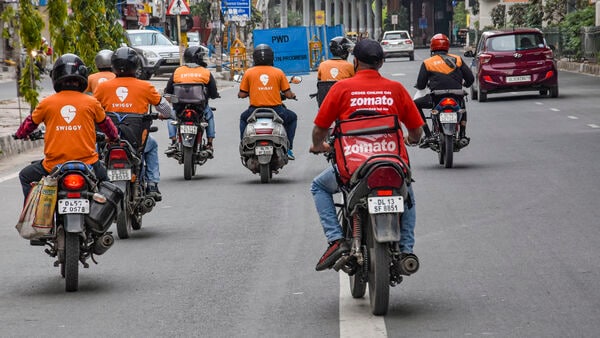Key Takeaways
- Swiggy, Zomato, Blinkit, and other aggregators must contribute 1-2% of annual turnover for gig worker welfare
- Contribution capped at 5% of amount paid to platform workers
- New labour codes take effect from November 21, 2025
- All gig and platform workers to receive comprehensive social security benefits
India has introduced sweeping labour reforms that will require food delivery, e-commerce, and quick-commerce platforms to allocate up to 2% of their annual turnover toward social security for gig and platform workers. The four new Labour Codes, announced on Friday, will take effect from November 21, 2025, replacing 29 outdated labour laws.
Historic Definitions and Social Security Expansion
For the first time, India has officially defined “gig workers,” “platform workers,” and “aggregators” under the new legal framework. The Code on Social Security, 2020, will extend comprehensive social security coverage to all workers, including those in the gig economy.
Platform workers will now receive Provident Fund (PF), Employees’ State Insurance Corporation (ESIC) benefits, insurance coverage, and other social security protections that were previously limited or unavailable.
Company Contributions and Implementation
The new mandate requires aggregator companies to contribute 1-2% of their annual turnover toward gig and platform worker welfare. The Ministry of Labour and Employment clarified that this contribution has an upper limit of 5% of the total amount paid or payable to these workers.
“Aggregators must contribute 1–2% of the annual turnover, capped at 5% of the amount paid/payable to gig and platform workers,” the Ministry stated in its official announcement.
The Aadhaar-linked Universal Account Number (UAN) system will ensure welfare benefits with full portability, making them accessible to gig workers across state borders regardless of migration patterns.
“For employers, this is the moment to proactively reassess workforce structures, update employment documentation and realign compliance systems to ensure a smooth, risk-free transition to the new regime,” said Pooja Ramchandani, Partner at Shardul Amarchand Mangaldas & Co.
Modernizing India’s Labour Framework
The government aims to modernize labour regulations to enhance worker welfare and align with global labour ecosystem evolution. The existing 29 labour laws, many drafted between the 1930s and 1950s, have been operating under fragmented, complex, and outdated provisions.
“The reforms will significantly impact sectors such as IT/ITES, manufacturing, MSMEs, gig and platform work, textiles, logistics and hazardous industries, each facing new obligations around wages, social security, safety standards and women’s night-shift participation,” Ramchandani added.
The four Labour Codes comprise the Code on Wages (2019), Industrial Relations Code (2020), Code on Social Security (2020), and Occupational Safety, Health and Working Conditions Code (2020), all effective from November 21, 2025.




